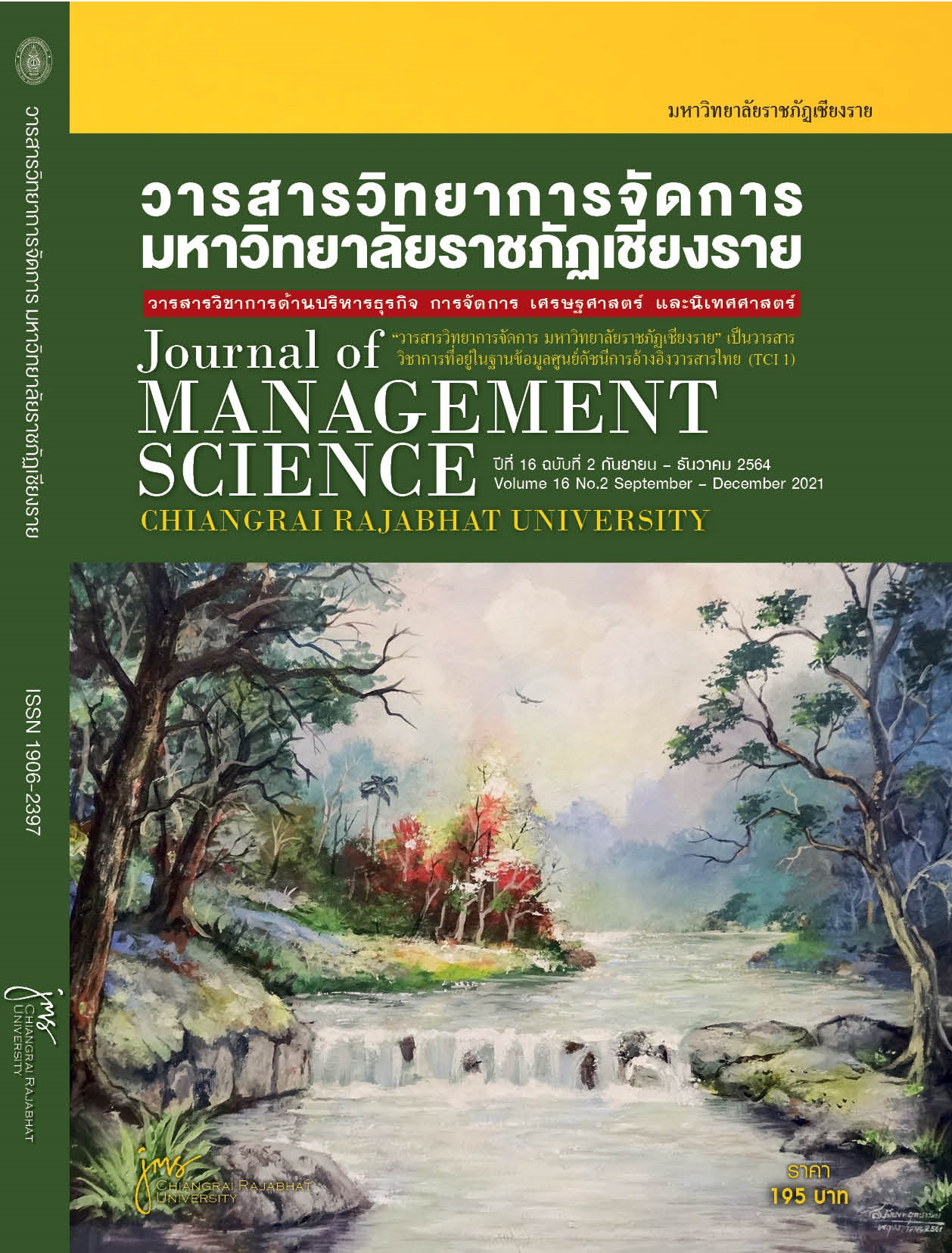The Development of Pattern in Planning and Budgeting Integrated Area in Order to Provincial Groups, Province and Local, Toward Enhance of Government’s Policy Based on the Philosophy of Sufficiency Economy
Main Article Content
Abstract
This study discovered that Budget Bureau has been following a top-down policy of allocating the budget according to the national government policy, and the need of each governmental departments, and finally according to the needs of each area. All the budgeting plans of the local administrative organs, are all following the national budgeting plan from the central government. The needs to allocate the budget came from the local entities, with create a comprehensive budgeting plan according to the actual needs, which is under the direct responsibility of Bureau Budget. According to the budgeting legislative of 2561 BE, Budget Bureau needed develop a budgeting mechanism to be able management budgeting, evaluation and reporting with accurate data from all the related governmental entities and in real time. We would suggest that Budget Bureau need to use information technology to connect between all the governmental departments, so that focus on allocating the budget according to achieve provincial development flagship project. Furthermore, we should change the budget allocation plan according to the area each province or provincial groups and also change the format of budget allocation request and related the documents. The government agencies from national level to local level needed to focus on the participation of the people regarding to budgeting planning. Budget Bureau needed to set a new direction and reform its regulations, regarding to the budget allocation plans. It must focus on connecting all the different actors from provincial level to the local level, so that the budgeting plan would to go along with the national strategy and goal based on Management by Objective. We have to support the provincial governors to lead the planning and executing efficiently by allocating to specific task force to take care of the budget in the local area 1-18. It needs to create a modern organization and reduce the bureaucracy process for more efficient organization. It ought to adjust its vision for its responsibility, then organize proper training programs for the Officers to improve productivity. The Bureau of the Budget should give advices to the local government agencies, so that they can organize the One Stop Service for the people through implementation of the information technology that fit with the local needs. This implementation has to follow the philosophy of sufficiency economy with integrity and the goal of maximizing public interest.
Article Details
Views and opinions expressed in the journal do not necessarily reflect those of the editors.
References
Budget Procedures Act, B.E. 2561. (2018, 11 November). Government Gazette. Rule Number 135 Section Number 92 Kor. Pages 1-18.
Christopher Hood. (1991) “A Public Management for All Seasons?” Public Administration. 69, Spring, 3-19.
Constitution of the Kingdom of Thailand B.E. 2560. (2017, 6 April). Government Gazette. Rule Number 134 Section Number 40. Pages 21-111.
Gruening, G. (2001). Origin and theoretical basis of new public management in International. Public Management Journal. 4(1): 1-25.
Hughes, Owen E. (1994). Public Management and Administration: An Introduction. New York: St. Martin’ Press.
Lasswell, Harold D. and Abraham Kaplan. (1970). Power and Society. New Haven: Yale University press.
Narong Satpanroj. (1995). Preparation, Adoption and Execution to the National Budget: Theory and Performance. Bangkok: Bophit Printing Co., Ltd.
Ouchi, William G. (1981). Theory Z : How American Business Can Meet the Japanese Challenge. Mass: Addison-Wesley.
Peters Guy B. (2010). The Politics of Bureaucracy: An Introduction to Comparative Public Administration. 6th edition. Abingdon, Oxon: Routledge.
Prawet Wasi. (2011). Public Policy Process. Bangkok: National Health Foundation.


